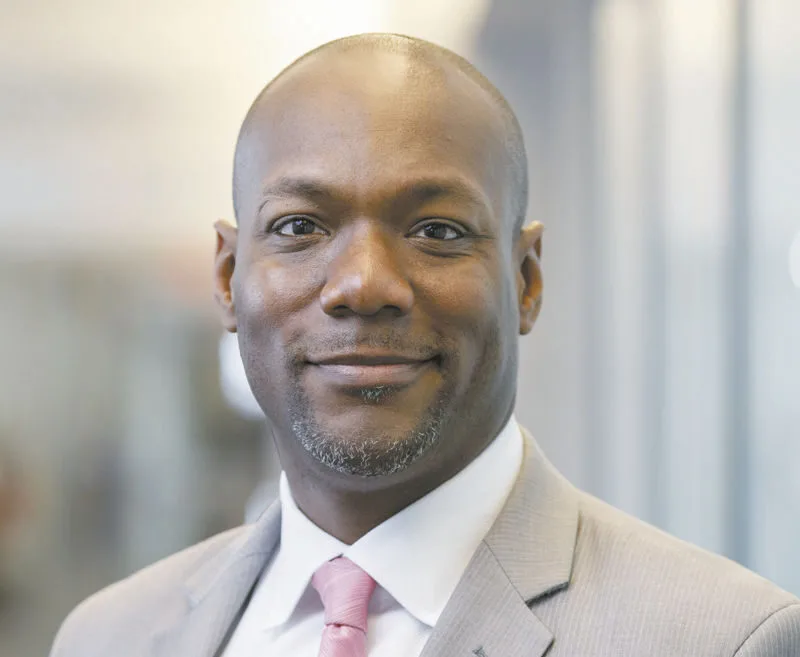
As I read about Senator Tim Scott’s nascent presidential run, I thought about the solitary place in which Black Republicans often find themselves. I say “place” rather than “places” because I’m not referring to physical location; people can feel alone even in a crowded room. For a variety of reasons, Black Republicans exist on the outskirts of the political landscape. This reality is superlatively chronicled in Dr. Leah Wright Rigueur’s The Loneliness of the Black Republican: Pragmatic Politics and the Pursuit of Power.
A major (as yet unidentified) donor has purchased $40 million in ads for Senator Scott’s campaign. For context, that is more than the currently committed ad buys for Donald Trump and Ron DeSantis combined. Still, history suggests that Scott has a substantial, if not insurmountable, hurdle to the Republican nomination. While Democrats can boast of just one African American who secured their party’s nomination, others have been serious contenders – with Rev. Jesse Jackson most prominent among them.
On the contrary, Blacks who have attempted to ascend the Grand Old Party’s version of Mt. Everest have barely advanced beyond base camp. Alan Keyes and the late Herman Cain come immediately to mind. Keyes is especially interesting because he is the personification of social conservatism, yet barely made a ripple in his three presidential bids. It is silly to argue that anything other than his race hindered him. Of course, the same could be said of Rev. Jackson. Yet, while racism is not confined to one political party, Black Democrats have tended to fare better among white majority electorates (especially outside the South) than have their Black Republican counterparts.
Black Democrats, or even those who aren’t associated with a political party, tend to look askance at Black Republicans. Is this completely fair? No. Is it completely understandable? Yes. The primary reason is that we don’t see or hear Black Republicans speak up frequently or vociferously enough regarding racial injustice and disparities. It often feels as though they rewrite, or simply ignore, America’s racial record.
As hard as it might be to imagine, most Black folks identified as Republicans in the not-too-distant past. This is understandable given that the GOP began as a staunchly antislavery alternative to Democrats. Many whites wore the moniker “Radical Republican” as a badge of honor. That began to change with the election of Franklin Roosevelt. While the shift had already begun prior to his ascent, African Americans’ party affiliation substantially accelerated based on Roosevelts’ promises of racial equality. By the late 1960s, the transformation was complete. Is that change permanent? Time will tell.
Anyone who knows me well knows that I am not reflexively anti-Republican. Some of my best friends are Black Republicans! (Sorry. I couldn’t resist.) In any case, I am a Democrat by default. For all practical purposes, selecting a political party is a binary choice in my state. (I’d like to claim to be non-binary in this instance, but that would be intellectually dishonest.) However, I am reflexively anti-racism. While I don’t argue that the Republican Party is inherently racist, too many in that party are willing to countenance racial bigotry.
Clearly, Republicans are sensitive to the perception that their party is racist, which is why candidates of color like Scott and his South Carolinian rival, former Governor Nimarata “Nikki” Haley, keep repeating that “America is not a racist country”. Republicans (of whatever race) tend to do very poorly among African Americans in large measure due to their refusal even to acknowledge that racism exists. On a related note, I will point out that our general lack of support for Black Republican candidates destroys the argument that we vote for people “just because they’re Black”.
Politically, it is crucial to understand that racism is not the sole issue about which Black folks care. Thus, Donald Trump did better among Black men in 2020 than he had done in 2016. This is in large measure due to his economic message and his incessant attacks on the far left, both of which resonate with a sizable percentage of Black men. Some people ignore this fact given the relatively small increase in Trump’s support from a relatively small voting block; I’m not one of those people. Like Kassandra, I keep prophesying to the Democratic Party what its future is going to be if it doesn’t become more competent vis-à-vis Black men.
There has always been, and I suspect that there will always be, a thread of intra-racial strife among us given America’s particular racial dynamics. We’re always half-joking about “taking someone’s Black card” or “barring them from the barbeque”. (My former father-in-law once inquired as to whether I was a Republican, which is something that he could not fathom.) Black police officers are perhaps the best comparison. On the one hand, they’re often perceived as not “Black enough”; on the other, they’re often viewed as not “blue enough”. This places them in an incredibly awkward position, one which they have to deftly manage.
I strongly believe that every person has the inherent right to freedom of conscience – though I don’t necessarily think that every choice that we make is based upon our conscience. Black Republicans should not be castigated for their political identification, but they should expect to be held accountable for what their political identity represents. The same is true for all people.

